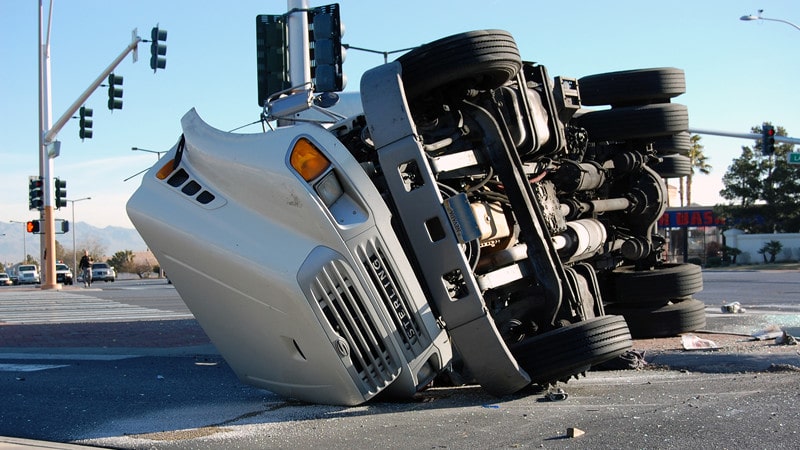In the aftermath of a truck accident, you may find yourself thrown into an unfamiliar world of legal procedures and terminology. It’s a challenging path, navigating the hurdles of the law while recovering from an injury and coping with loss.
Knowing what to expect when filing a truck accident lawsuit can help alleviate some of the uncertainty and stress surrounding the situation. Below, we’ll guide you through the most critical stages of the legal process, offering insights into the intricacies of such cases.
Understanding the Complexity of Truck Accident Lawsuits
Truck accident litigation is intricate due to various factors like injury severity and commercial trucking regulations. Lawsuits involve multiple potentially liable parties, from drivers to manufacturers and government entities. Establishing negligence requires a deep understanding of road safety laws and truck operations.
Trucks’ size and weight lead to catastrophic damages, heightening the stakes for plaintiffs and defendants. Trucking companies and insurers often deploy aggressive legal teams to minimize liability, complicating compensation pursuit. Partnering with an experienced truck accident lawyer Chicago is crucial for navigating this landscape.
The discovery phase is critical, necessitating the gathering and preservation of evidence like logbooks and safety policies. These records reveal breaches of duty, vital for the case.
Case duration and outcome hinge on factors like trial location and accident specifics. Each case demands a tailored legal strategy to counter defense resistance effectively.
The Role of Evidence in Building Your Truck Accident Case
In truck accident cases, evidence is crucial for building a strong claim. Gathering information immediately post-accident is key: photos, witness statements, police reports, and physical evidence should be collected promptly to prevent loss or destruction.
Expert testimony is pivotal for interpreting evidence and constructing a coherent narrative. Specialists in accident reconstruction, trucking standards, medicine, and economics provide insight into the incident’s cause and its financial impact.
Technology such as dashcams and GPS tracking in trucks offer indisputable evidence, aiding in reconstructing the accident and countering potential defenses.
Legal teams must secure evidence from the trucking company, like maintenance records and the driver’s employment history, possibly through court orders to prevent document destruction. These efforts highlight the importance of evidence in building a compelling case against the responsible party.
Navigating Settlement Negotiations with Insurance Companies
Dealing with insurance companies in truck accident lawsuits requires finesse. Initial lowball offers are common but shouldn’t deter you. A skilled attorney can counter with a figure that reflects your true damages.
Stay informed and patient throughout negotiations. Clear communication with your lawyer helps you make informed choices. Quick settlements may not cover long-term costs adequately. Express willingness to go to trial if needed. This shows seriousness in seeking rightful compensation and can leverage negotiations.
Fair settlements entail detailed breakdowns of expenses: medical bills, lost income, pain, suffering, and future costs. Accurate quantification of damages is crucial for a satisfactory offer.
The Trial: What to Expect in Truck Accident Litigation
When a truck accident lawsuit proceeds to trial, it signals unsuccessful settlement negotiations. The trial phase involves presenting evidence, testimonies, and arguments to a jury or judge for a verdict. Your legal representation’s persuasive skills become crucial in refuting the defense’s arguments.
Preparation is key, involving intense strategizing and mock trials to anticipate defense tactics. The trial includes opening and closing statements, evidence presentation, and witness examination. Consistency in presenting your case builds credibility with the court.
The trial’s duration varies based on complexity, often lasting days or weeks. Plaintiffs must maintain patience and steadiness as the process unfolds, managing unforeseen developments.
Privacy is a concern, as personal details may become public records. Understanding the litigation process and collaborating closely with your attorney is essential for managing these implications.
Post-Trial Procedures: Appeals and Compensation Recovery in Truck Accident Cases
After a verdict, the truck accident lawsuit may proceed to appeals if either party disagrees. This stage demands ongoing legal expertise to navigate the appellate court’s standards. Following a favorable verdict, efforts turn to enforcing judgment and recovering compensation.
However, collecting compensation can be challenging, with defendants or insurers often delaying payment. A skilled legal team employs strategies like liens or garnishments. Tax implications of compensation must be considered to comply with the law while maximizing financial benefits. Anticipating delays is crucial, as appeals and collection efforts can prolong the process, helping manage post-trial stress.
Overall, navigating a truck accident lawsuit entails numerous stages, each posing unique challenges. From evidence collection to settlement negotiations and litigation, a skilled legal team is essential. With perseverance and guidance, victims can seek compensation that acknowledges their losses and enables them to move forward.




